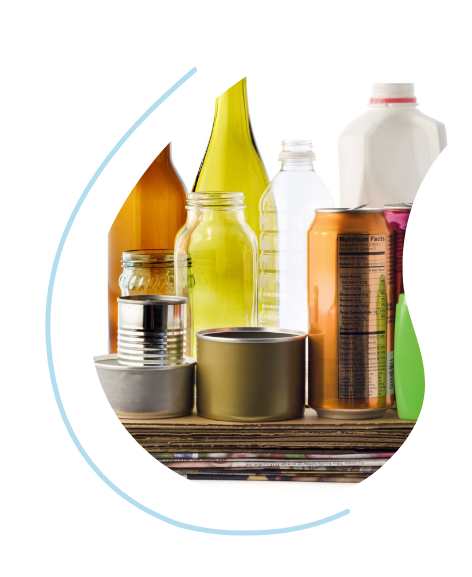Knowledge Center: Article
Using paper as a food contact material
How to comply with current regulations

How to comply with current regulations
In recent years, there has been increasing concern about the use of plastic in food packaging. It’s often made from fossil fuels, has a negative impact on aquatic and terrestrial environments and is difficult to recycle with current systems. In response, governments have introduced legislation, like the EU Directive on single-use plastics, aimed at minimising waste and improving waste management. As for consumers, disturbing images of plastic pollution in the oceans are driving them away from plastic packaging in favour of more eco-friendly materials.
Food producers are reducing the amount of plastic in food packaging and developing circular packaging solutions incorporating sustainable yet cost-effective alternatives. These include so-called “green” plastics created from renewable sources like corn, starch and other biomass, or biodegradable plastic based on polylactic acid (PLA). However, many bio-based plastics have not yet been approved for use in food packaging.
TRISKELION has both the legislative knowledge and the advanced analytical expertise to help you ensure your sustainable food packaging material is compliant with regulations. Paper is emerging as a leading alternative material since it’s seen as renewable and easily recyclable. However, paper usually has to be treated in various ways before it can be used in many food applications. It may also be bleached or coloured to look appealing to consumers. These processes involve the use of chemicals that can migrate into food. Furthermore, harmonised EU legislation on paper packaging is currently lacking, meaning food manufacturers have to navigate the paper food packaging regulations in individual EU member states.
To help you comply with current regulations, TRISKELION takes the time to thoroughly understand your food contact material and your situation. Only then do we offer a customised solution that fits your needs:
With all these services, we are flexible and adaptable. That’s why we’re a trusted partner for leading raw material producers, converters, food manufacturers and food contact material producers.
The world of food contact materials changes constantly and continued compliance is crucial. If you want to ensure your sustainable food contact materials meet current and future regulations, please contact Mireille de Groot, +31 6 5000 7471, info@triskelion.nl

Please contact Mireille de Groot, +31 6 5000 7471 or info@triskelion.nl